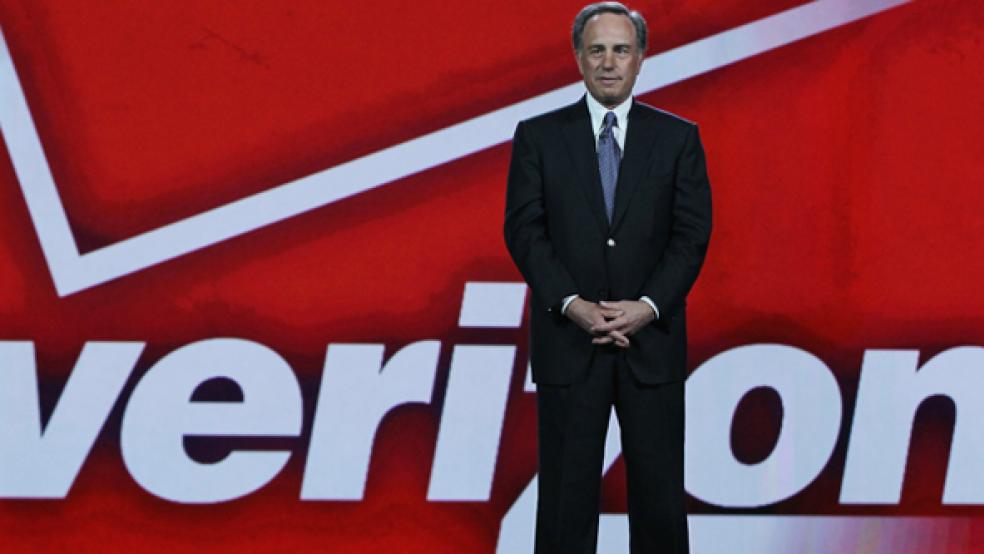One-fourth of the 100 highest-paid CEOs in America took home more in pay than their companies paid in taxes to the federal government, a new report says.
The annual executive compensation survey from the Institute for Policy Studies also shows that the ratio of CEO pay to the pay for average workers in their companies rebounded last year nearly to pre-recession levels after falling considerably in 2008 and 2009. CEOs earned on average 325 times the average worker’s pay in 2010 compared with 263-to-1 in 2009. (CEO pay hit 344-to-1 in 2007.]
“Corporate outlays for CEO compensation – despite the lingering Great Recession – are rising, [while] employment levels have barely rebounded from their recessionary lows,” the report’s authors note.
The average CEO paycheck at companies included in the Standard & Poor’s 500 soared 27.8 percent in 2010 to an average of $10.8 million, according to the report, which was based on publicly reported data from the Securities & Exchange Commission. Average worker pay at those companies, on the other hand, rose just 3.3 percent to $33,121.
This latest survey on executive compensation focuses on corporate tax payments because of the likelihood that corporate tax reform will be on the political agenda next year and could become one of the items included in the congressional “Super Committee” deficit reduction report due in December. The nation’s business leaders are pushing for a tax holiday for repatriated earnings parked abroad and an across-the-board decrease in corporate tax rates to bring the U.S. more in line with international competitors. At the same time, large numbers of U.S. companies pay low or no federal taxes because of numerous tax breaks, loopholes, and exclusions in the tax code, including the exclusion for profits earned abroad. The 25 companies that paid more to their CEO than to Uncle Sam averaged $1.9 billion in profits last year.
GE led the parade by reporting $5.1 billion in pre-tax profits while paying nothing in income taxes. In fact, the company received a $3.3 billion “refund,” which it can use to eliminate taxes owed in future years.
Meanwhile, GE CEO Jeff Immelt, who chairs President Obama’s Council on Jobs and Competitiveness, earned $15.2 million last year while the company spent $41.8 million on lobbying Congress. Since 2008, GE has shut down 31 plants in the U.S. and reduced its U.S. workforce by 19,000, the report notes.
Other top earners on the list of highly profitable corporations that paid no taxes included Ford’s Alan Mulally, who took home $26.5 million last year, a 48 percent increase over 2009. Ford earned $4.1 billion in profits in 2010 while claiming a $69 million “refund” that it can use to write off future tax liabilities.
Chesapeake Energy’s Aubrey McClendon received a 13 percent raise to $21.0 million; his company paid zero taxes on $2.9 billion in profits. The company is a major beneficiary of special tax breaks given to natural gas producers.
According to the report, “Verizon received a massive tax refund last year – despite earning $11.9 billion in pre-tax U.S. profits – the highest among the 25 firms highlighted….” Verizon, whose CEO, Ivan Seidenberg, is picture above, “also has a heavy political presence in Washington,” the report says. “Last year alone, the telecom giant spent $16.7 million on lobbying — and deducted these outlays off its taxes.”
Internet companies have joined old-line manufacturers and energy producers on the list of outfits using overseas subsidiaries to limit taxes paid to the government. John Donohoe, the CEO of eBay, earned a 22 percent pay hike last year, to $12.4 million, after his company declared $848 million in profits. Yet the online auction retailer claimed a $131 million “refund” from Uncle Sam.
The company now has 31 subsidiaries in nine countries considered tax havens, including Switzerland and Singapore. It reported tax savings of $284 million in those two relatively small countries last year, according to the report.
EBay has been on the frontlines in fighting states that want to collect sales taxes on purchases made over the Internet. The declining yield of sales taxes as Internet shopping gains popularity has become a major contributor to the fiscal woes of the nation’s states and localities.





